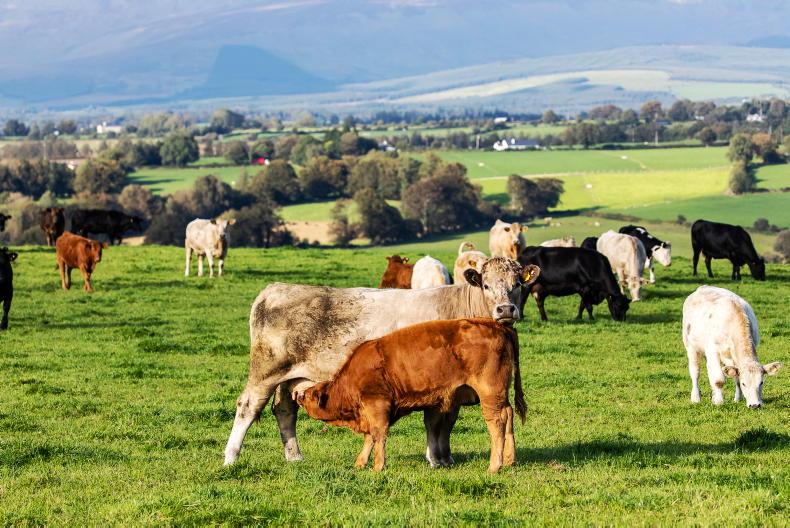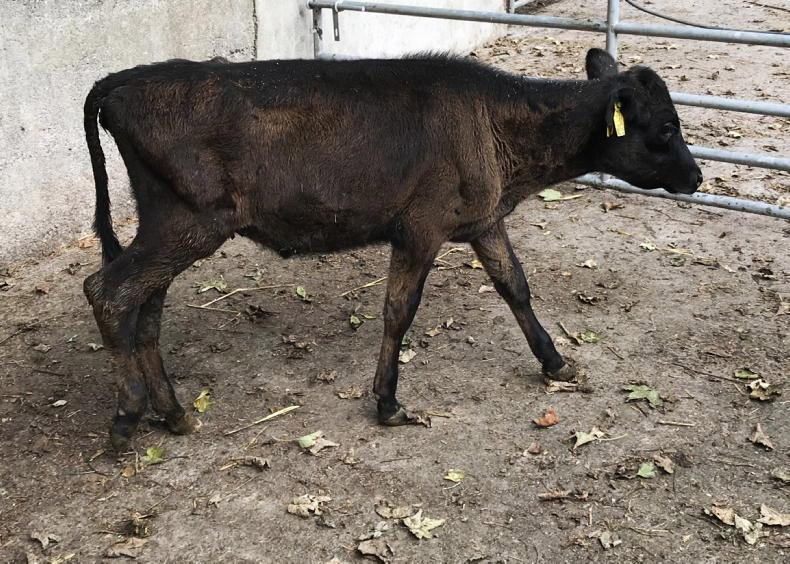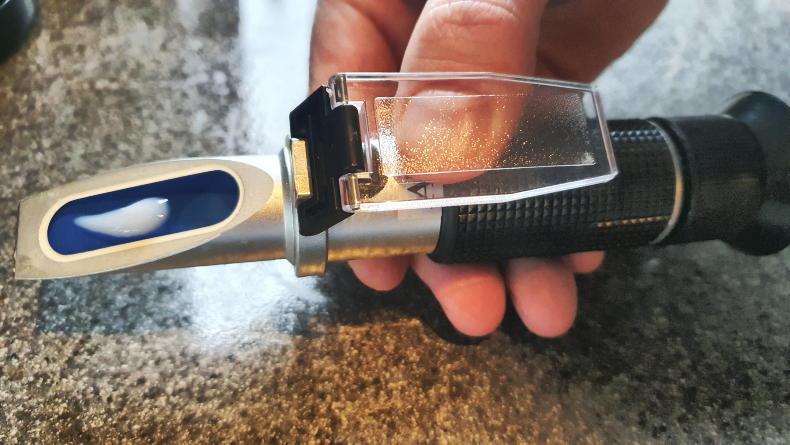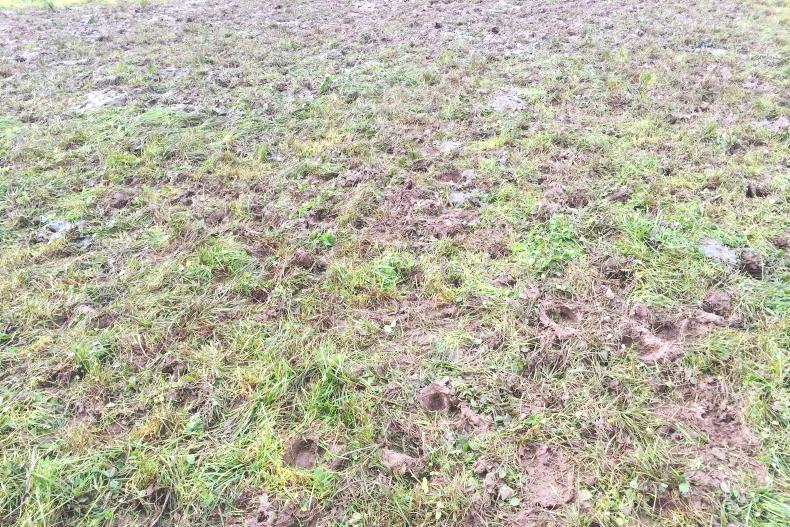Calf scour: Difficult weather conditions have meant turnout has been delayed in many parts of the country. This has the knock-on effect of space being at a premium and has led to outbreaks of scour on some farms over the last few days.
Wet weather means bedding areas were hard to keep dry and that has caused issues on some farms. Try not to limit straw usage in calving pens. Make sure young calves have a clean, dry bed to lie on for the first few days. Try and clean out calving pens on a regular basis.
Disease will build up in calving pens as calving progresses and this is when problems will arise. If a scour outbreak does occur, a good option is to try and move away from the shed that is being used for calving. This will help protect new calves from the disease. This won’t be an option on many farms and if weather conditions are favourable in the next few days, outdoors is the best option for newborn calves. Plenty of fluids are important for the scouring calf. Stomach tubing 2l in the morning and evening won’t be enough. Scouring calves will need 8l/day to replace lost fluids. This should be divided into smaller feeds over a 24-hour period.
Oral rehydration products can vary widely. Some vets say that the best rehydration therapy will contain electrolytes (sodium/potassium), an energy source (glucose/glutamine) and products to correct metabolic acidosis (bicarbonate). It may not be obvious if there isn’t enough of each ingredient, so if in doubt, consult your vet on what product to use. The current advice is to leave calves on the cow i.e on milk during any treatment. The use of calf jackets for sick or weak calves seems to work well on some farms and can speed up the recovery process.
Delayed turnout: Last week’s rain has meant spring-calving cows have been delayed in getting out to grass. Be careful around condition loss in freshly-calved cows. They will need to be fed the best quality silage on-farm, along with 2-3kg of meal to avoid excessive body condition loss.
If too much condition is lost, it could lead to delays in getting cows back in-calf. On some farms, there may be an option to let cows out during the day, depending on shed location. Weanlings will cope without meal if rehoused for a short period. Use this week’s good weather to plan for fertiliser spreading if you are behind target on application.
Painkillers: There has been a lot of discussion around the use of painkillers for routine tasks like dehorning, castration etc. Painkillers can aid an animal’s recovery and decrease the stress associated with the task. It is also recommended to use them after a difficult calving to aid cow and calf recovery.
Research has shown that the recovery process is accelerated after use. Anything that can increase animal welfare on farms should be investigated and the option of using a pain-killing injection when needed should be looked at.
BETTER Farm NI webinar: For anyone that missed our BETTER Farm programme NI webinar last Thursday night, you can watch it back here.









SHARING OPTIONS